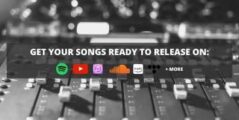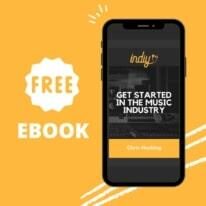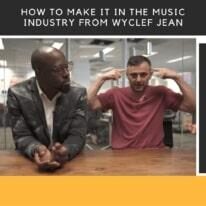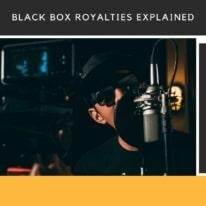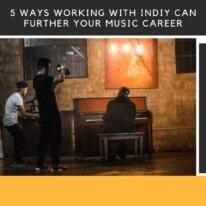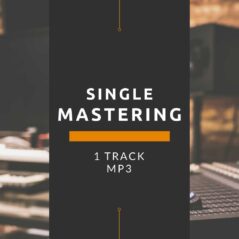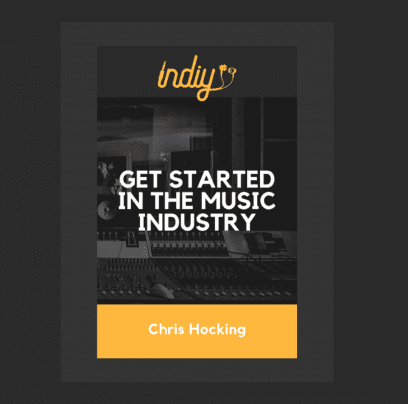Mechanical royalties generate income that is typically received by the songwriter, composer, or author of a piece of music. Income is generated when a consumer uses a copyrighted work in some way, such as when they listen to music.
When songwriters create a song, they typically assign rights to music publishers. They do this in exchange for an advance and a percentage of future royalties. The music publisher then licenses the song to labels, TV shows, movies, and other users in exchange for royalties. These royalties are paid out as a percentage of revenue generated by the use of the song.
Performance royalties, on the other hand, are paid to the songwriter every time their song is performed live. Performance royalties are also paid when a song is played on the radio, television, or streaming services like Spotify. They are collected by performance rights organizations (PROs) like ASCAP and BMI and then distributed to their members.
Some people believe that mechanical royalties are more important than performance royalties. This is because they are based on the number of copies of the song that are sold or played. Performance royalties, on the other hand, are based on how often the song is performed. However, others believe that performance royalties are more important because they generate more income for the songwriter.
Types of Royalties
There is no right or wrong answer when it comes to which type of royalty is better for a songwriter.
The four main royalty types include:
- Mechanical
- Public performance
- Synchronization
- Print music.
Whilst many artists are aware that performing live shows or selling CDs can bring in money. There is a multitude of other potential revenue streams that are a little less clear-cut.

How Are Mechanical Royalties Generated?
Mechanical royalties are generated every time a copyrighted song is reproduced in some form. The songwriter and the music publisher both share in the royalty payments. These payments are typically generated from sales of records, CDs, digital downloads, and ringtones. In order for a mechanical royalty to be generated, the song must be registered with a performance rights organization. Such as BMI , ASCAP or PRS in the UK. The royalty rates in the USA are set by Congress and are based on the number of copies made.
There are two main ways to generate mechanical royalties for your music:
- Streaming
- Sales
"Revenues from streaming music platforms grew 30% year-over-year to reach $7.4 billion, contributing 75% of total revenues for 2018, and accounting for virtually all the revenue growth for the year."
According to the Recording Industry Association of America® (RIAA)
More on Mechanical Royalties
Other, often overlooked, ways to earn yourself mechanical royalties include:
- Downloadable Ringtones
- Interactive Greeting Cards
- Karaoke or Recorded Cover Songs
- Film Soundtracks
All music retailers are required to pay mechanical licensing societies on revenue earned from every download.
In the US, these royalties are paid directly to publishers. Outside of the States, these royalties go through the designated copyright collection society wherever your music is being played.
Otherwise, these royalties often just sit there. Meaning they are in danger of ending up in ‘The Black Box’ category.
If you don’t know what that is, make sure you read our article ‘Black Box Royalties Explained’.
Performance Royalties
Performance royalties are payments made to songwriters and music publishers based on the public performance of their songs. This can include broadcasts (radio, TV, internet), live performances, and use in film, advertising, or other media. The amount paid is typically a fraction of the overall revenue generated by the performance.
Songwriters should be proactive in monitoring their performances and requesting payment from the publishing company when applicable.
Performance royalties are generated from any public performance. Ways you can earn performance royalties include:
- Radio
- Live venues
- Restaurants
- Bars
- Elevator music services
- Supermarkets
- Clothing Stores
- Gyms
- Jukeboxes
These royalties are collected and paid out by Performing Rights Organisations (also known as PROs).
PRO’s license the songs in their catalogue for use. They then use performance data to allocate the money to publishers and writers. To better understand this check out our article ‘Performing Rights Organisations 101: All About PRO’s’. And also make sure you check out this video from AdELA Music:
Wrap up
In conclusion, mechanical royalties and performance royalties are both beneficial to artists in different ways. Mechanical royalties are paid when a copyrighted song is reproduced. Such as on a CD or vinyl record, while performance royalties are paid when a copyrighted song is performed publicly. Therefore, it is important for artists to understand the differences between these two types of royalties. Because they can us this information to negotiate the best possible deal for themselves.
If you don't want to stop learning and wanna get clued up read our next article How To Avoid a Scam Music Contract and always remember...
Keep Making Great Music ✌️
DO YOU MAKE MUSIC? THE INDIY MISSION
Indiy exists to help people create great music!
Did you know 40 thousand songs are uploaded to Spotify every day!
We want to hear about what you do, what makes you special and share it with the world!
Submit to be interviewed for Indiy Spotlight, its 100% FREE Just click here for your music interview
If you are working on new material, we have partnered with Audio Mastering to offer mastering on your next release from just £2 per song (approx $2.75 USD) - Check the offer out here
Search all articles
Andrea
Andrea graduated from Roehampton University and The BRIT School, whose globally recognized alumni include Adele, Katy B, Ella Eyre, FKA Twigs, Jessie J, Leona Lewis, Katie Melua, Kate Nash and the Rizzle Kicks. She takes her love of the arts and entertainment industry to provide useful information to upcoming musicians, helping them navigate the industry and avoid making costly mistakes. She actively mentors our current contributors. Andrea has qualifications in Content Marketing and also manages our collaborative playlists for independent artists
Follow Indiy



